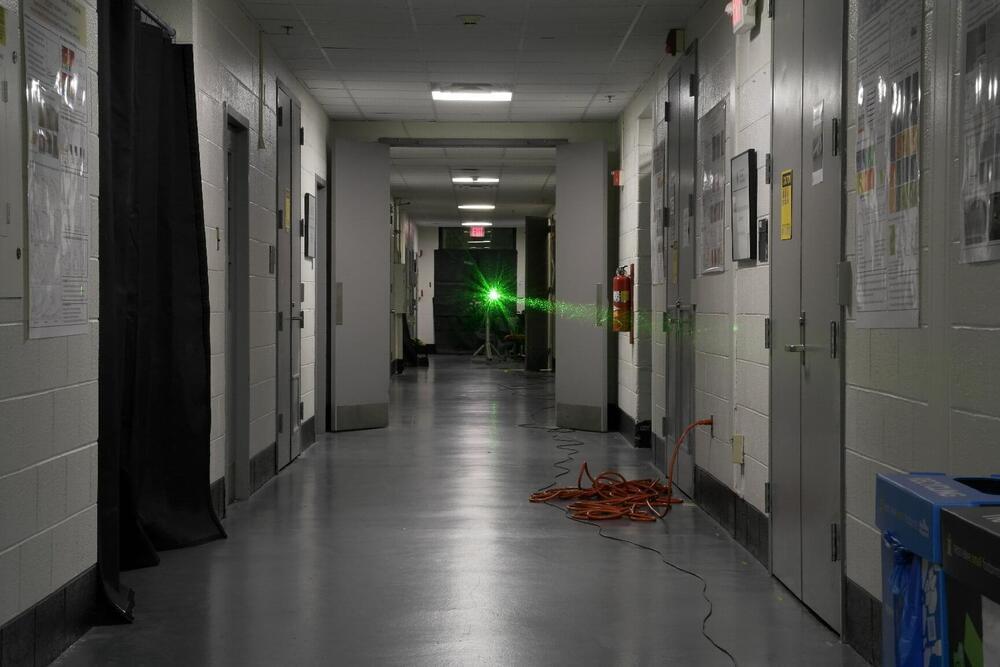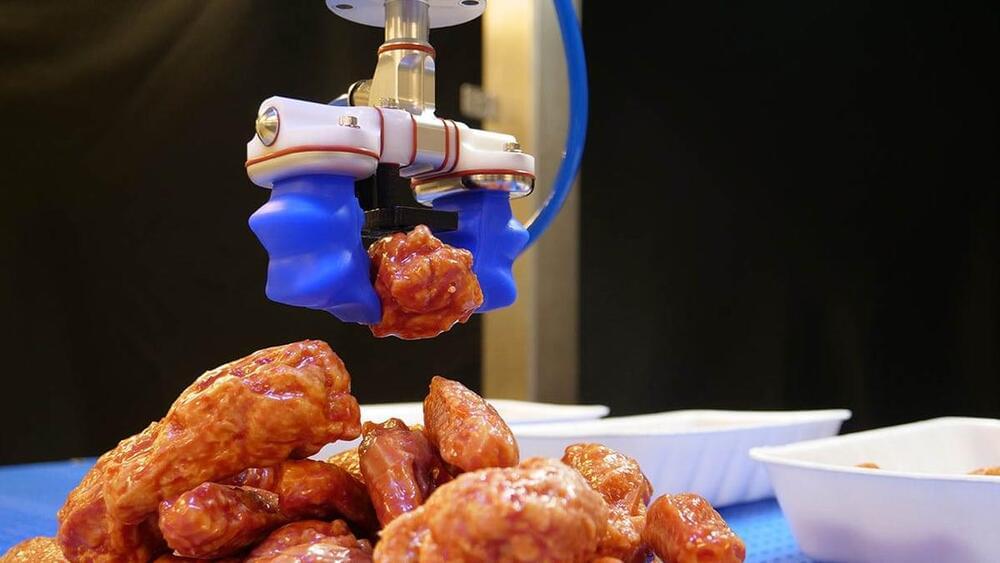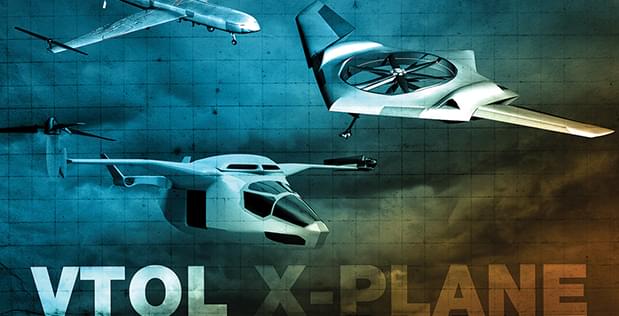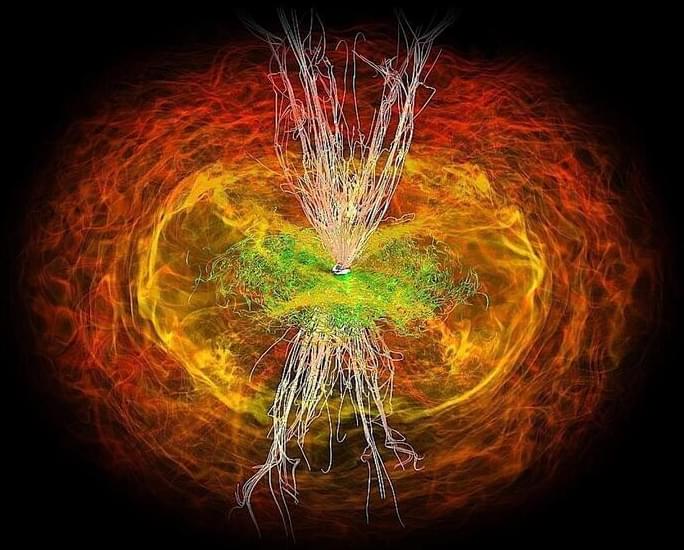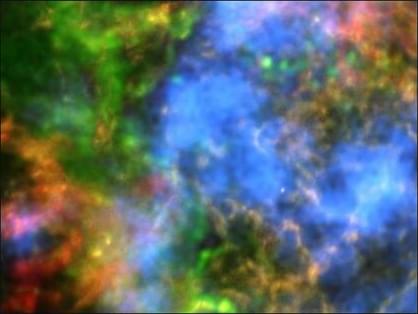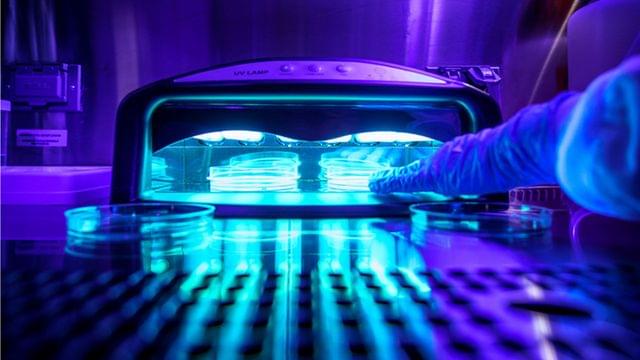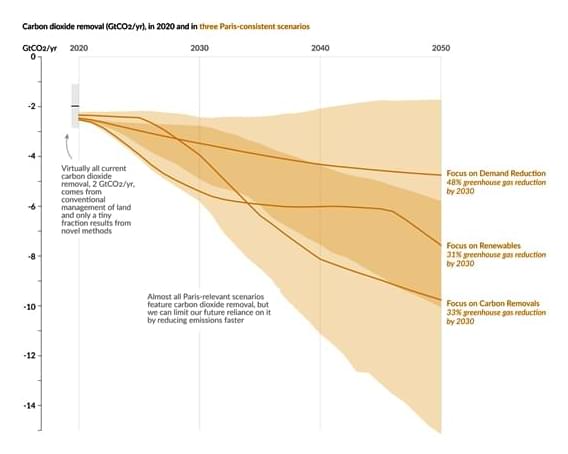It’s not at every university that laser pulses powerful enough to burn paper and skin are sent blazing down a hallway. But that’s what happened in UMD’s Energy Research Facility, an unremarkable looking building on the northeast corner of campus. If you visit the utilitarian white and gray hall now, it seems like any other university hall—as long as you don’t peak behind a cork board and spot the metal plate covering a hole in the wall.
But for a handful of nights in 2021, UMD Physics Professor Howard Milchberg and his colleagues transformed the hallway into a laboratory: The shiny surfaces of the doors and a water fountain were covered to avoid potentially blinding reflections; connecting hallways were blocked off with signs, caution tape and special laser-absorbing black curtains; and scientific equipment and cables inhabited normally open walking space.
As members of the team went about their work, a snapping sound warned of the dangerously powerful path the laser blazed down the hall. Sometimes the beam’s journey ended at a white ceramic block, filling the air with louder pops and a metallic tang. Each night, a researcher sat alone at a computer in the adjacent lab with a walkie-talkie and performed requested adjustments to the laser.
